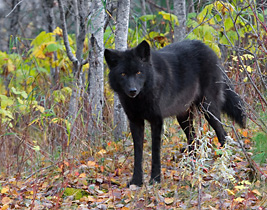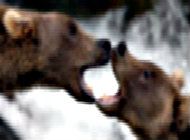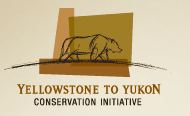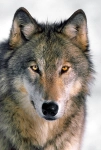Howling For Justice
Blogging for the Gray Wolf

-
Join 6,122 other subscribers
Like Wolf Warriors On Facebook
Like HFJ On Facebook
-

- My Tweets
- My Tweets
This blog is dedicated to the memory of Wolf 253, the beloved Yellowstone Druid wolf named Limpy, who was shot and killed in March 08, on the very day ESA protections were lifted for the gray wolf, by the then Bush Administration.Previous Posts
Speak For Wolves – Yellowstone 2015

Petitions To Sign
Pages
Categories
-
Recent Posts
- Gray Wolf One True Wolf In North America…
- The Montana Trap-Free Public Lands Initiative, I-177, has qualified for the November 8, 2016 ballot!!
- Happy Fourth of July
- After Harambe’s Senseless Death It’s Time To Phase Out Zoos….
- Jeff Corwin Speaks Out on Harambe’s Death – “Zoo’s Aren’t Your Babysitters”
- ACTION ALERT: “House Republicans Unveil Another Anti-wolf, Anti-endangered Species Appropriations Bill”
- Study Shows “Government-Sanctioned (Wolf) Culling Actually Results in More Illegal Killings”
- Jane Goodall Among 58 Scientists Urging Government to Halt Grizzly De-Listing
- ACTION ALERT: Stop The Delisting Of The Yellowstone Grizzly – Last Day To Comment!
- Happy Mothers Week!
Your Comments
Marie on Yellowstone’s Cottonwood… alf.com on What Wolf Crisis Should I Writ… Tess Husbands on Judge Molloy Rules Against… Rebecca on Gray Wolf One True Wolf In Nor… idaursine on Gray Wolf One True Wolf In Nor… -
May 2010 M T W T F S S 1 2 3 4 5 6 7 8 9 10 11 12 13 14 15 16 17 18 19 20 21 22 23 24 25 26 27 28 29 30 31 Wolf Credo
•Respect The Elders
•Teach the Young
•Cooperate With The Pack
•Play When You Can
•Hunt When You Must
•Rest In-Between
•Share your affections
•Voice your feelings
•Leave your mark.
......Del Goetz 1988
Blogroll
Alliance For The Wild Rockies
 Boulder White Clouds Council
Boulder White Clouds Council- Demarcated Landscapes
 Exposing The Big Game
Exposing The Big Game Footloose Montana
Footloose Montana Friends of the Clearwater
Friends of the Clearwater Lockwood Animal Rescue Center
Lockwood Animal Rescue Center Louise du Toit
Louise du Toit LUPUSLAETUS
LUPUSLAETUS Mercy For Animals
Mercy For Animals Northern Idaho Wolf Alliance (NIWA)
Northern Idaho Wolf Alliance (NIWA)- Predator Defense
 Predator Friendly®- Because Wildlife Matters
Predator Friendly®- Because Wildlife Matters Project Coyote
Project Coyote Project: Wolf
Project: Wolf The Nature Conservancy
The Nature Conservancy The Ravensong Group
The Ravensong Group Vital Ground
Vital Ground- Western Watersheds Project
 WildEarth Guardians
WildEarth Guardians Wisconsin Wildlife Ethic-Vote Our Wildlife
Wisconsin Wildlife Ethic-Vote Our Wildlife Wolf And Wildlife Studies: Jay Mallonee (Independent Wolf Biologist)
Wolf And Wildlife Studies: Jay Mallonee (Independent Wolf Biologist) Wolf Song of Alaska
Wolf Song of Alaska Wolves in english ! Les loups en anglais !
Wolves in english ! Les loups en anglais ! WWP's Gray Wolf Page
WWP's Gray Wolf Page Yellowstone To Yukon Conservation Initiative
Yellowstone To Yukon Conservation Initiative
Tags
aerial gunning of wolves Alliance for the Wild Rockies animal cruelty apex predator assault on the esa Biodiversity Canis Lupus Center for Biological Diversity Congress dispersing wolves Dogs Druid Peak Pack Earth Island Journal endangered species act ESA Friends of the Clearwater Glacier National Park gray wolf gray wolf/canis lupus gray wolves Howl Across America Idaho Idaho wolf hunt Idaho wolves IDFG Imnaha pack Judge Molloy Ken Salazar Louise Du Toit Mexican Gray Wolves Michigan Minnesota Montana Montana FWP Montana wolf hunt Montana wolves New Mexico NIWA ODFW Oregon Oregon wolves poaching stand up for wolves stop killing wolves take action trophic cascades trophy hunting USFWS WDFW Western Watersheds Project WildEarth Guardians Wildlife Services Wisconsin wolf extermination wolf hunts wolf hysteria wolf intolerance wolf myths wolf persecution wolf poaching wolf pups wolf recovery wolf research wolf scapegoating wolf slaughter Wolf Wars wolves wolves in peril wolves in the crossfire wolves or livestock wolves suffering Wyoming Wyoming wolves Yellowstone National Park Yellowstone Wolves-
Action Alerts Activism aerial gunning of wolves Animal Cruelty Animal rights Biodiversity endangered species act Glacier National Park gray wolf/canis lupus gray wolf pups grizzly bear Howl Across America Howling For Justice Idaho wolves Mexican gray wolf Minnesota gray wolves Montana wolves Oregon wolves Public Land Degradation by Livestock Trophy Hunting Washington Wolves Wildlife Services War on Wildlife Wisconsin Wolves wolf intolerance wolf recovery Wolf Warriors Wolf Wars wolves under fire Wyoming wolves Yellowstone Wolves





